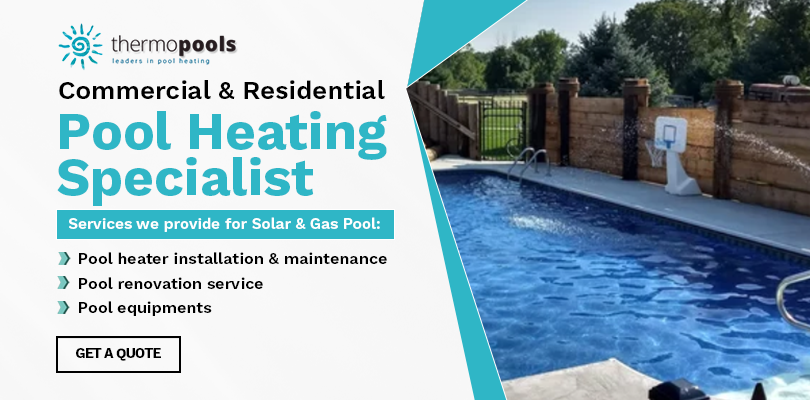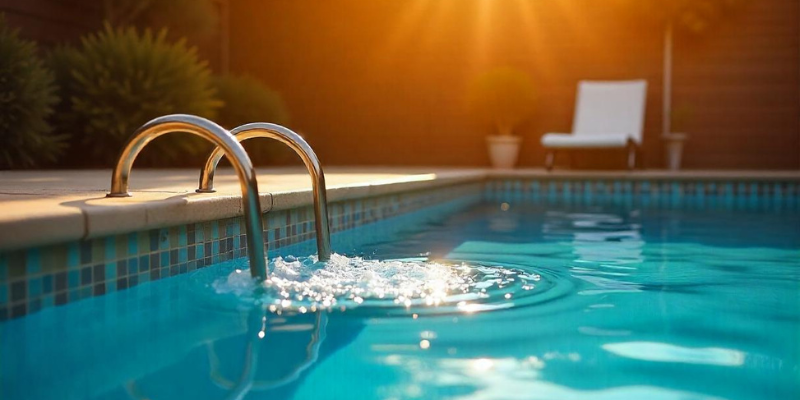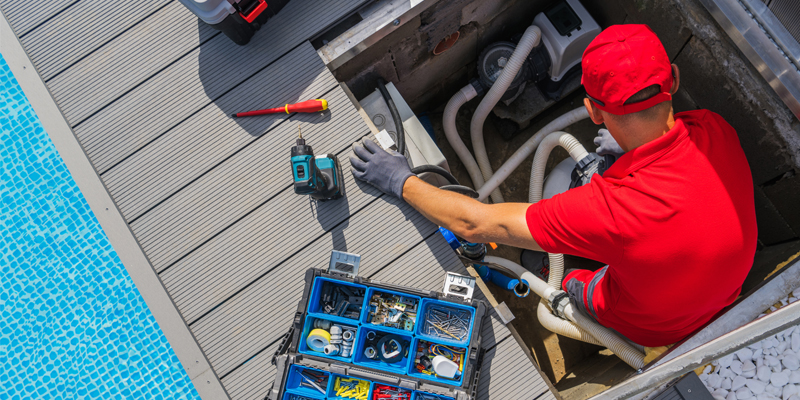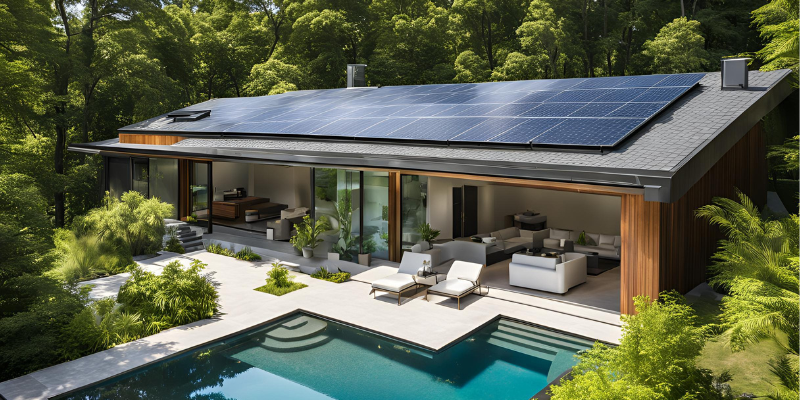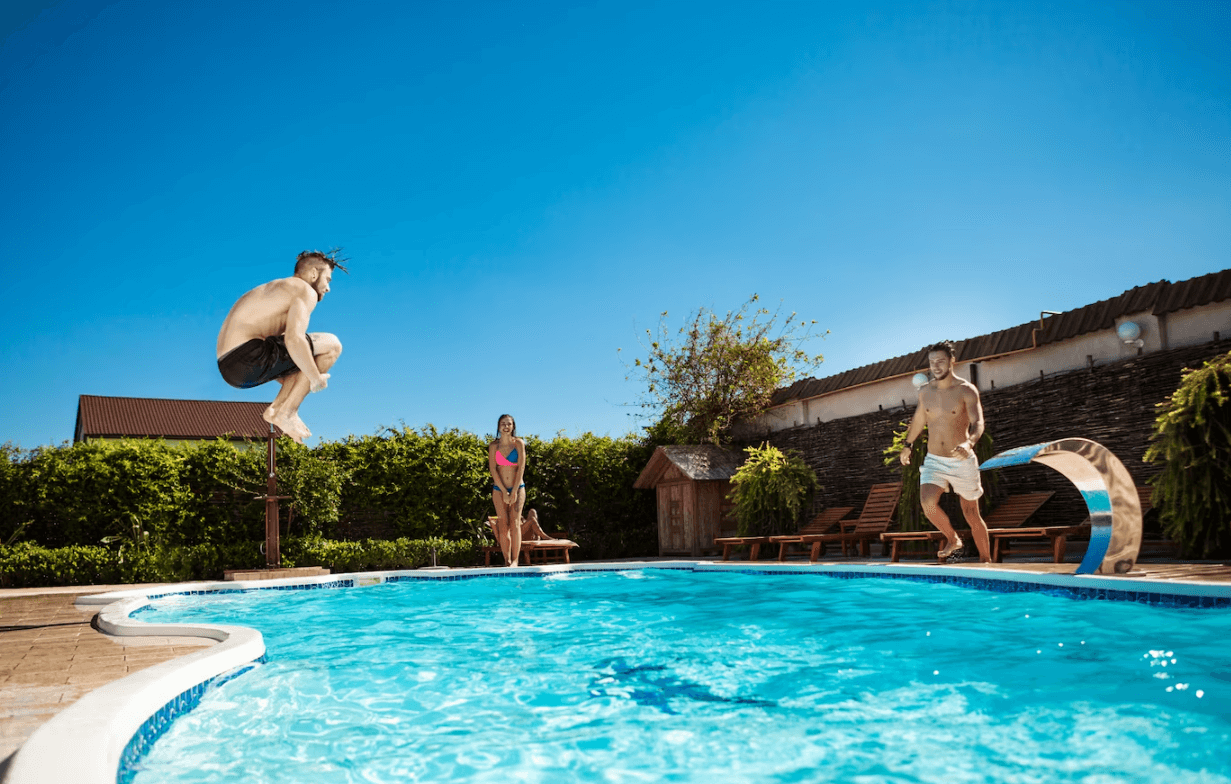
Swimming pools are a great addition to any home. They offer a refreshing escape from the summer heat and can be enjoyed by both children and adults alike. However, with a swimming pool comes the need for a heating system, and choosing the right one can be a difficult decision. Two popular options are pool heat pumps and solar pool heating.
In this article, we’ll compare and contrast these two options to help you determine which is better for your swimming pool.
How do heat pumps work?
A heat pump is a device that extracts heat from the air or ground and transfers it to the water in your pool. This process is achieved through the use of refrigerant and a compressor. Essentially, the heat pump takes the heat from the outside air or ground and uses it to heat the water in your pool. Heat pumps are very efficient and can heat your pool quickly and easily.
How does solar pool heating work?
Solar pool heating works by utilizing the sun’s energy to heat your pool. Solar panels are installed on your roof or a nearby location, and water is pumped through them, where it is heated by the sun’s energy. The heated water is then pumped back into your pool. Solar pool heating system is a popular option because it is environmentally friendly and can save you money on your energy bills.
Cost
When it comes to cost, heat pumps are typically more expensive than solar pool heating systems. However, heat pumps are more efficient than solar pool heating systems and can heat your pool more quickly. Additionally, heat pumps can be used year-round, whereas solar pool heating systems may not be as effective in colder weather or during cloudy days.
Efficiency
Heat pumps are very efficient and can heat your pool quickly and easily. They use electricity to run, but they can be up to 80% more efficient than traditional electric pool heaters. Solar pool heating systems are also efficient, but they rely on the sun’s energy to heat your pool, so their efficiency can vary depending on the weather.
Environmental Impact
Both heat pumps and solar pool heating systems are environmentally friendly options. Heat pumps are more efficient than traditional electric pool heaters, which reduces their carbon footprint. Solar pool heating systems rely on the sun’s energy, which is a renewable resource, and they don’t emit any harmful pollutants.
Maintenance
Heat pumps require very little maintenance, but they do need to be serviced annually to ensure they are working properly. Solar pool heating systems also require very little maintenance, but they do need to be cleaned periodically to ensure they are working at peak efficiency.
Lifespan
Heat pumps have a lifespan of around 10-15 years, whereas solar pool heating systems can last up to 20 years or more. However, both options can last longer if they are properly maintained.
Performance
Heat pumps are very effective at heating your pool quickly and efficiently. They can maintain a consistent temperature, regardless of the weather outside. Solar pool heating systems, on the other hand, are dependent on the sun’s energy, so their performance can vary depending on the weather and time of day.
Installation
Heat pumps require professional installation, which can be expensive. However, once installed, they are very easy to use. Solar pool heating systems also require professional installation, but they are generally less expensive to install than heat pumps.
Location
Heat pumps can be installed anywhere, as long as there is enough space for the unit and proper ventilation. Solar pool heating systems require a large amount of space for the solar panels, and they need to be installed in an area that receives a lot of sun.
Climate
Heat pumps can be used year-round, regardless of the climate. They are very efficient and can heat your pool quickly, even in colder weather. Solar pool heating systems are less effective in colder weather and may not be able to heat your pool to a comfortable temperature during cloudy days.
Conclusion
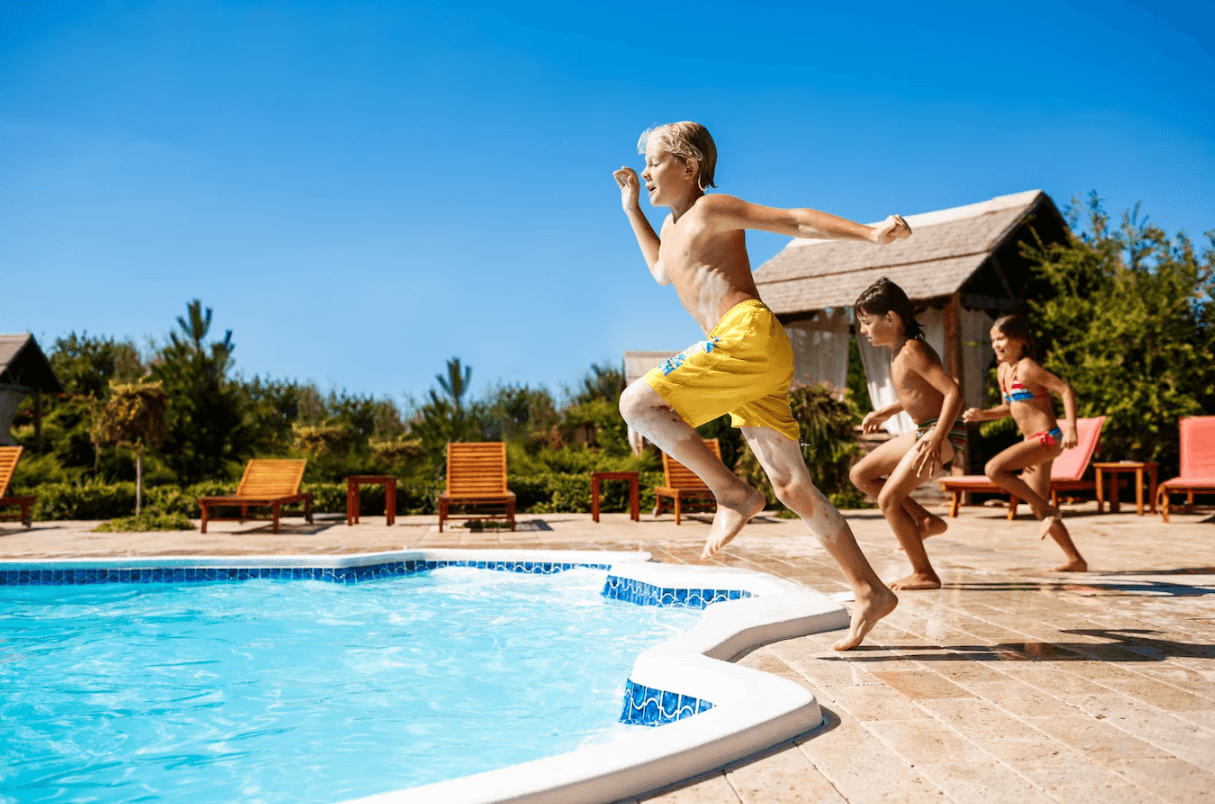
When it comes to choosing between a heat pump and a solar pool heating system, there are several factors to consider. Heat pumps are more expensive to install, but they are very efficient and can heat your pool quickly and easily. Solar pool heating systems are less expensive to install and are environmentally friendly, but their effectiveness can vary depending on the weather. Ultimately, the decision will come down to your personal preferences and needs.
FAQs
- How long does it take to heat a pool with a heat pump?
- It typically takes 24-48 hours to heat a pool with a heat pump, depending on the size of your pool.
- Can solar pool heating systems be used year-round?
- Solar pool heating systems are less effective in colder weather and may not be able to heat your pool to a comfortable temperature during cloudy days.
- Are heat pumps environmentally friendly?
- Yes, heat pumps are more efficient than traditional electric pool heaters, which reduces their carbon footprint.
- How long do heat pumps last?
- Heat pumps have a lifespan of around 10-15 years, but they can last longer with proper maintenance.
- Which is more expensive, a heat pump or a solar pool heating system?
- Heat pumps are typically more expensive to install than solar pool heating systems.
If you want to enquire about an inverter heat pump & solar pool heating system, call us at Thermo Pools at 02 8850 4030 & Check our Google Reviews, and one of our expert and friendly teams will be happy to serve you!





